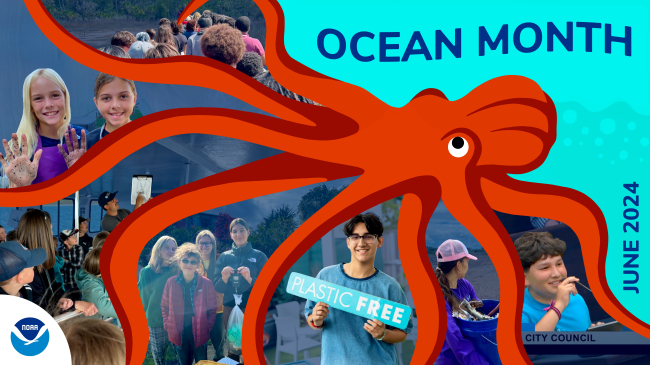At a lab in New Jersey over a thousand miles north of his Florida home, Nigel Lascelles carefully placed a single fragment of plastic from the waters of Hawaii into a tabletop machine. The machine’s readout — a chemical composition of the plastic — would give Lascelles and his NOAA mentors a glimpse into how similar plastics might impact ocean life.
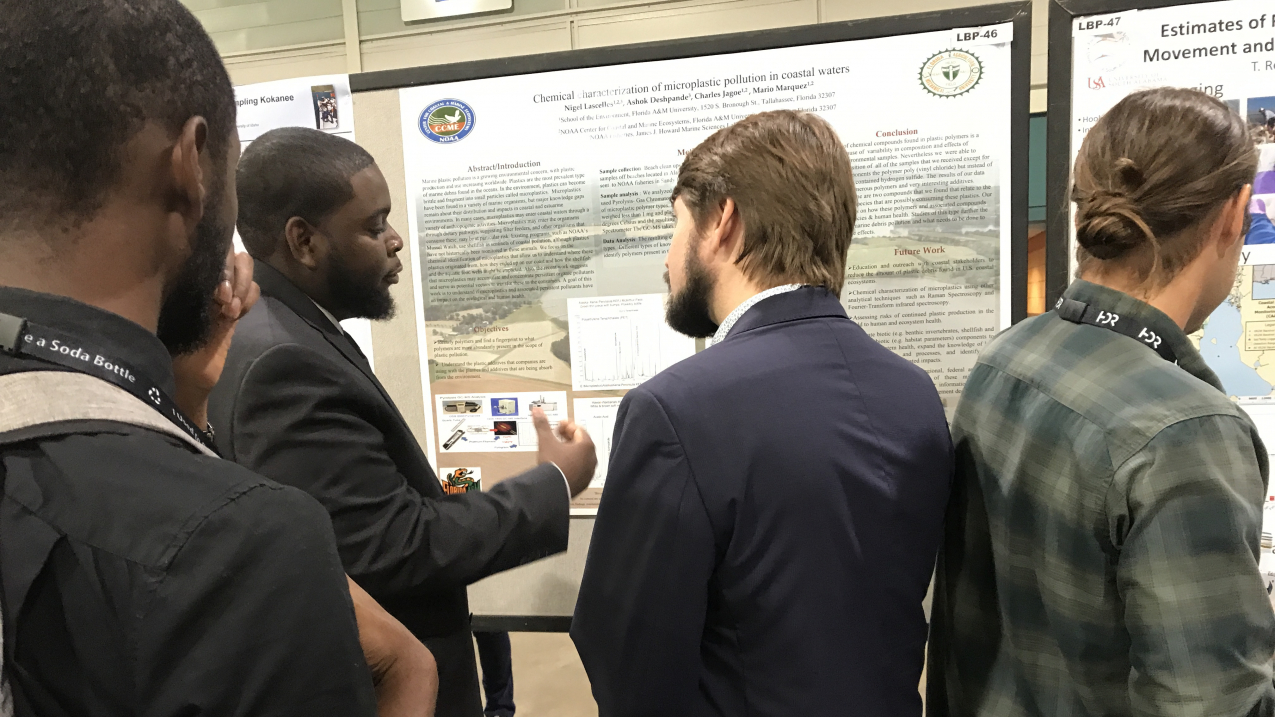
Nigel Lascelles, a graduate student supported by NOAA's Educational Partnership Program with Minority Serving Institutions (EPP/MSI) Cooperative Science Centers (CSCs), discusses his research with colleagues at the ASLO Aquatic Sciences Meeting in Puerto Rico in January 2019. (Image credit: Nigel Lascelles, NOAA-CCME Scholar)
Lascelles’ research experience was one of several three-month NOAA Experiential Research and Training Opportunities (NERTOs) completed by graduate students last year through NOAA’s Educational Partnership Program with Minority Serving Institutions (EPP/MSI). Graduate students supported by NOAA’s Cooperative Science Centers (CSCs) complete NERTO opportunities as a part of their graduate program. Students select a NOAA facility where they conduct cutting-edge research alongside experienced scientists.
Though this NERTO was Lascelles’ first introduction to NOAA research, it would prove to be a monumental influence on his career goals. “Until I became a NOAA Center for Coastal and Marine Ecosystems offsite link Graduate Scholar, I had little to no impression about NOAA,” he said. “Even doing some basic research on the administration, I really only thought of [NOAA] as a hurricane monitoring and weather service.”
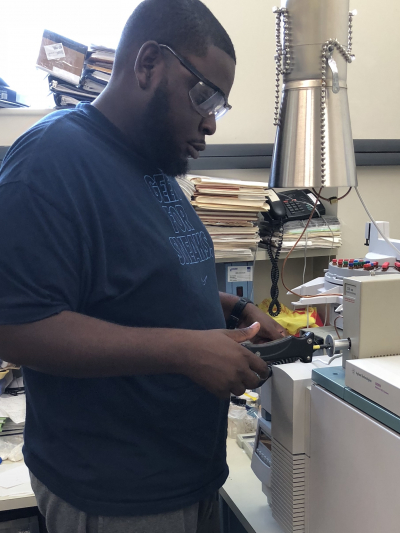
But once he arrived for his internship at the NOAA lab in New Jersey, Lascelles quickly learned otherwise. “At the J.J. Howard Sandy Hook Laboratory this past summer, my training made me think of NOAA as a leader in the field of environmental science,” he reflected. “They cover almost every aspect, from ocean chemistry, metals in the environment, counting fish populations, species responses in the ocean, and a plethora of other research topics.”
Lascelles’ research topic of interest, the impact of ocean plastics, was led by research chemist Dr. Ashok Deshpande. Dr. Deshpande mentored Lascelles as well as two other EPP/MSI CSC students from the NOAA Living Marine Resources Cooperative Science Center offsite link, Davielle Drayton and Dante Freemen. “The students bring in new energy and new ideas,” Dr. Deshpande said of his mentees. Each scholar looked at a different set of steps for determining a plastic’s chemical makeup. After their individual investigations were complete, the students came together to compare results and identify which process was the most accurate.
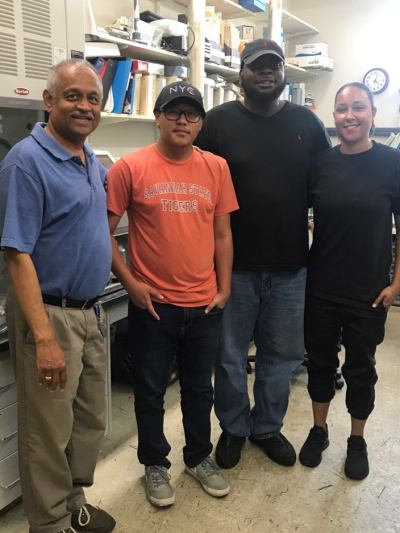
Working on their projects both independently and collaboratively, all three students left with valuable scientific skills and training. But other outcomes of the NERTO were less tangible and even more impactful. Through this experience, the students spent time getting to know scientists personally and began to see themselves in that role. Lascelles reflected that his time at the NOAA lab “really showed me the life of scientists who have worked hard to earn their place in the profession... I was so engulfed in being a scientist [that] it allowed me to realize that I do belong and that I would love to do this as a career for the next 40-50 years.”
The NERTO experience helped transform Lascelles from a student who was unaware of NOAA’s ocean research to an interdisciplinary scientist who feels that working at NOAA would be “a dream come true.” Lascelles added, “I often joked to Dr. Ashok [Deshpande] that I would be taking his job in the future, and I hope to be able to impact younger scientists the way that he did with me and my colleagues.”
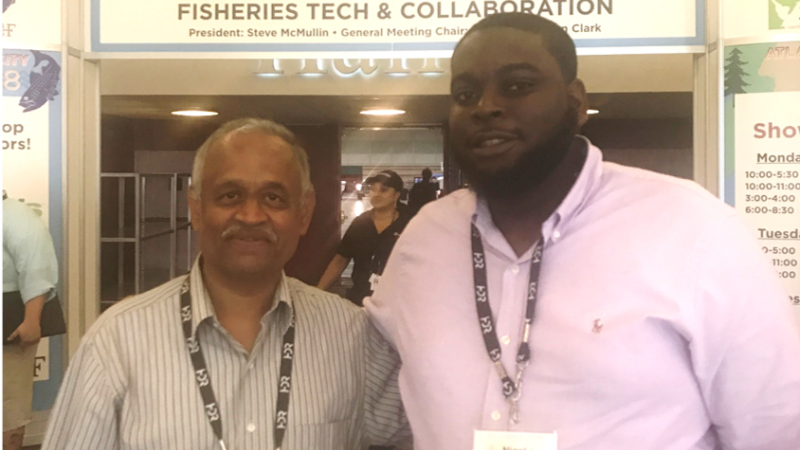
Lascelles is just one of 56 young scientists who have been impacted by a NERTO experience over the past 3 years, and NOAA looks forward to welcoming many more into our facilities in the future.
This story is the first in a series of highlights from the Educational Partnership Program with Minority Serving Institutions Cooperative Science Centers. Join NOAA Education in recognizing the accomplishments of these partner universities through individual stories about students and scientists.
NOAA’s Educational Partnership Program with Minority Serving Institutions (EPP/MSI) provides minority serving institutions and their students with financial support in an effort to train and graduate students from traditionally underrepresented communities in sciences that are aligned with NOAA’s mission. One component of the EPP/MSI program is the Cooperative Science Center (CSC) network. Each of the 24 institutions that are a part of this network focuses on educating and training students in one of four areas of focus, each vital to NOAA’s mission. Graduate students supported by CSCs participate in NOAA Experiential Research and Training Opportunities (NERTOs), intensive three-month internships at NOAA facilities designed to equip students with the skills necessary to become NOAA scientists.



